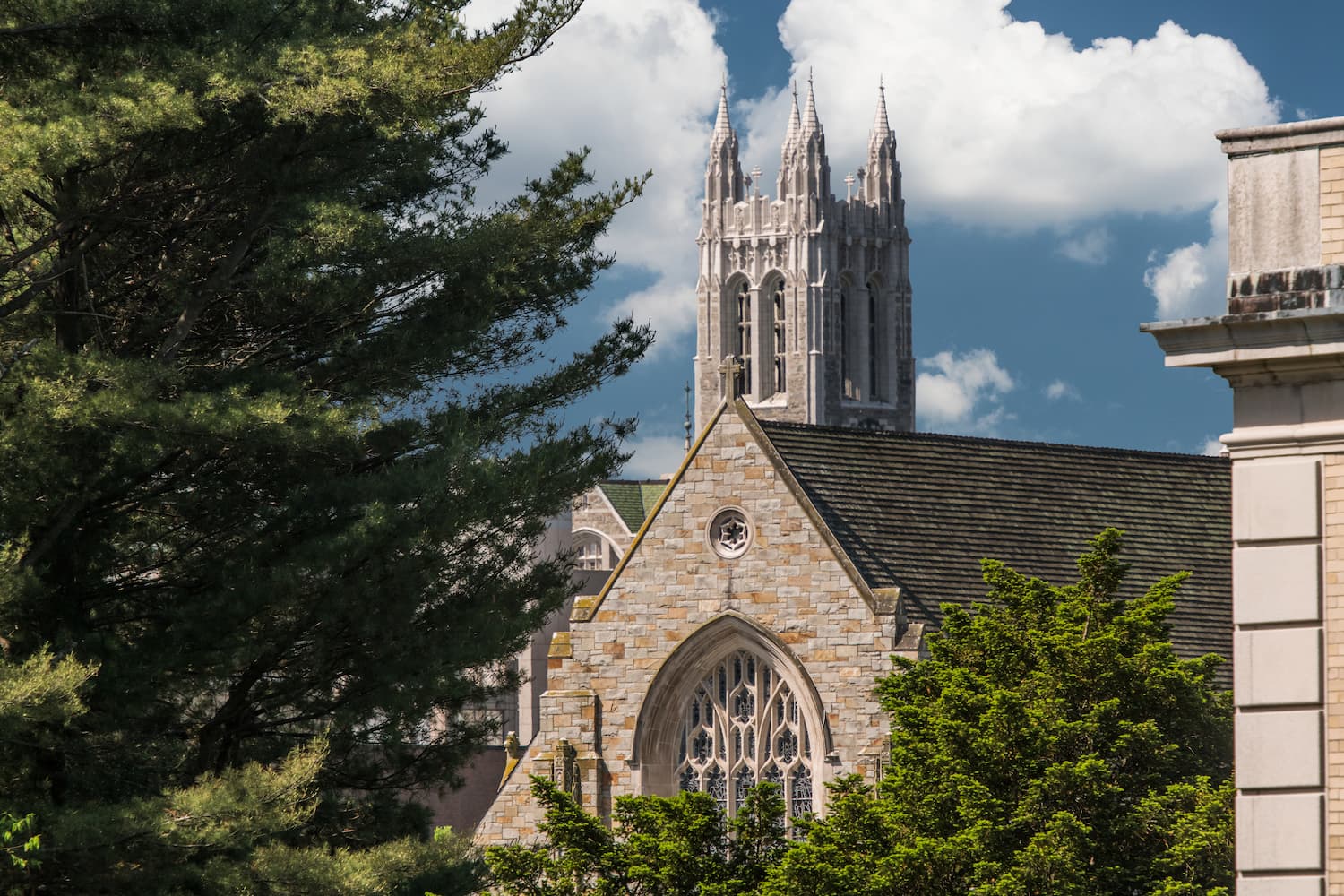
Read the original article on New Ways Ministry's website here.
In Spring 2022, I attended “Accepted Student Days” at Boston College’s Clough School of Theology and Ministry (CSTM) to learn more about the institution. After five years discerning my place in the church as a queer Catholic woman desiring to do LGBTQ+ ministry, I was ready to pursue a master’s degree in theology. What sticks with me even now from that visit to Boston was an unexpected experience of queer courage and resiliency.
The experience happened as I sat in a classroom with five to six other accepted students as two current students led the conversation. When we were all invited to introduce ourselves, one accepted student mentioned being LGBTQ+. Then, one by one, I and every other accepted student in the room said “me, too.” After a momentary pause, we all erupted in laughter, surprised and delighted to share this space together in the classroom of a Jesuit theology school. The laughter was followed by our sharing of how meaningful it was to be in a room full of other LGBTQ+ people pursuing theology and ministry despite the inevitable obstacles ahead of us working in the Catholic Church. Already, each of us paved our own separate ways through exclusionary sentiments and doctrine in the Church to get to that room.
Alyssa DuffnerI am now two years into my studies, and I have found that the way-making continues. Paving my way as a queer student is not without support structures. For example, I am able to study at the CSTM thanks to their “Building Bridges” scholarship, awarded to applicants interested in LGBTQ+ ministry and theology. This scholarship affords me the opportunity to pursue my passion for LGBTQ+ ministry, and it has affirmed that passion and my queer identity in a way I had not experienced before. I am also able to connect with others like me through “Gaudete,” a student group for members of the LGBTQ+ community and allies. This community reminds me of the feeling of connection and belonging I experienced during Accepted Students Days, buoying me through the more difficult moments of being a queer student at a Catholic school.
Much of my learning about LGBTQ+ ministry has been through my own efforts, like choosing to write papers on LGBTQ+ issues or taking queer theology classes with faculty outside my own program. A lack of access to such education and training at my home institution is frustrating. How can we dream of a future where LGBTQ+ Catholics are fully included in the Church when we are not providing the next generation of ministers with the knowledge and tools to achieve that dream?
Beyond my studies, I choose to be “out,” both in the classroom and on campus. My backpack is decorated with LGBTQ+ pins, a practice I began as a Catholic high school campus minister, in hopes of communicating welcome and safety to other LGBTQ+ students. I often identify myself as queer in classroom discussions or in conversations with peers and professors to counter the narrative that LGBTQ+ Catholics should be ashamed or silent. I am paving my own way in these moments, but I am also making a way for other LGBTQ+ students to show up authentically as well.
Though I frequently receive support, outing myself can still be nerve-wracking and does not always come easily. In a Scripture class I took last year, I prepared a presentation about “The Anointing at Bethany,” a story which appears in all four Gospels. I had originally planned to compare the unnamed woman who approaches Jesus, breaks open her jar of expensive ointment, and anoints Jesus’ head to LGBTQ+ people who boldly claim their belonging and worthiness, even when they face opposition. But for fear of judgment, I excluded these references to the LGBTQ+ community before presenting.
Showing up as queer in Catholic education, let alone advocating for LGBTQ+ inclusion, is disruptive, much like the unnamed woman breaking her jar. Ultimately, it pushes back against the Church’s history of silencing LGBTQ+ voices. Like the woman’s ointment, my practices of claiming space as a queer student with my words, outward symbols, and my studies are costly. I hope these actions spill onto the heads and hearts of others so that they may show up freely and authentically as well.
Whether someone is an LGBTQ+ student, teacher, staff member, or minister at a Catholic school, to show up as yourself can be risky, but it also comes with great reward. When the disciples rebuke the woman for “wasting” such costly ointment, Jesus stops them saying, “Truly I tell you, wherever the good news is proclaimed in the whole world, what she has done will be told in remembrance of her” (Mark 14:9). Reflecting on Jesus’ reply to the woman, theologian Yvette Blair writes: “The God of the oppressed liberates the woman from a footnote to remembrance.” By daring to take up space and pave our own way within Catholic institutions, we as LGBTQ+ Catholics do the same for our community.


